1. There are more than 200 known symptoms of coeliac disease which may occur in the digestive system or other parts of the body.
2. Some people develop coeliac disease in childhood, others as an adult. The reason for this is still unknown.
3. People with coeliac disease who eat gluten have higher than normal levels of certain antibodies in their blood. These antibodies are produced by the immune system because it views gluten (the proteins found in wheat, rye and barley) as a threat.
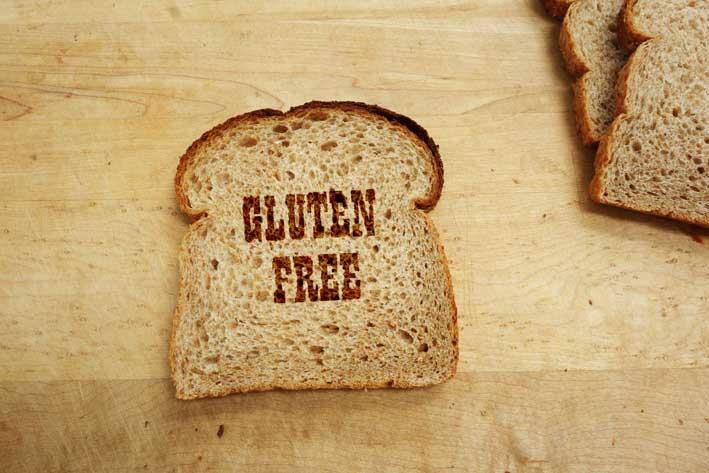
4. First-degree relatives (parents, siblings and children), whether or not experiencing symptoms, should always be screened, since there is a one in 10 risk of developing the condition.
5. It is currently estimated that 80 per cent of the coeliac disease population remains undiagnosed.
6. In classic coeliac disease, patients have signs and symptoms of malabsorption, including diarrhoea, steatorrhoea (pale, foul-smelling, fatty stools) and weight loss or lack of growth in children.
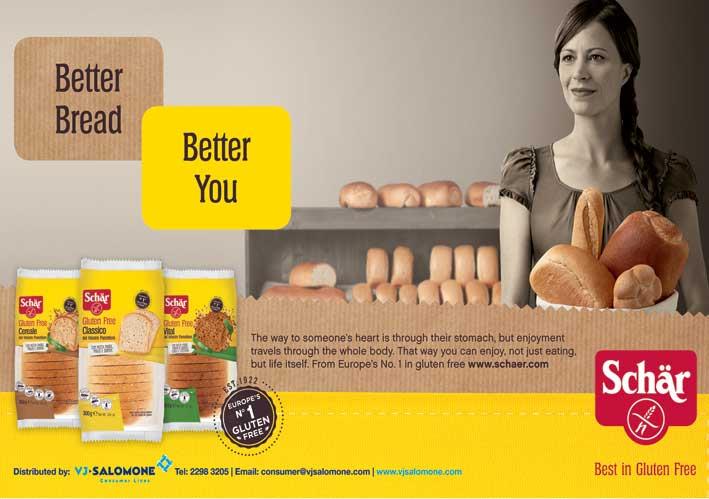
7. Studies show that even though patients with 'Silent Coeliac Disease' thought they had no symptoms, after going on a strict gluten-free diet they reported better health and a reduction in acid reflux, abdominal bloating and distension and flatulence.
8. Coeliac disease is associated with a number of auto-immune disorders and other conditions, the most common being thyroid disease and Type 1 Diabetes.
9. Some people experience symptoms found in celiac disease, such as 'foggy mind', depression, ADHD-like behaviour, abdominal pain, bloating, diarrhoea, constipation, headaches, bone or joint pain and chronic fatigue when they have gluten in their diet, yet do not test positive for coeliac disease.
10. Some of those with coeliac disease have no symptoms at all, but still test positive on the coeliac disease blood test.
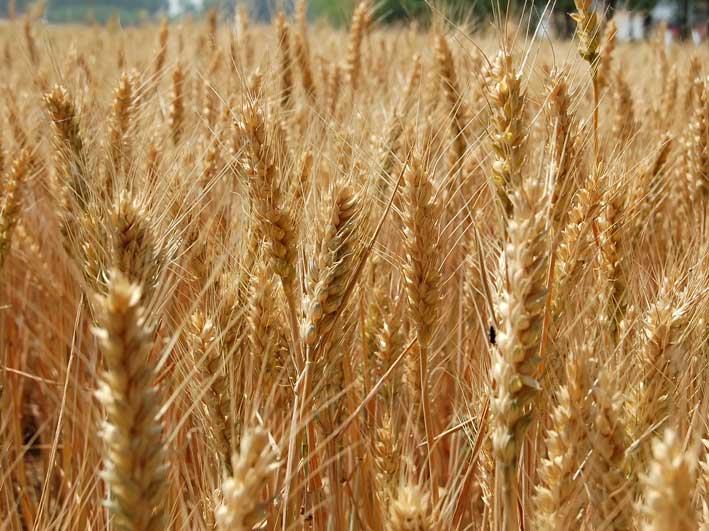
Did you know..? Hidden gluten can be present in food, medication and non-food products, including:
1. Modified food starch, preservatives and food stabilisers
2. Prescription and over-the-counter medication
3. Vitamin and mineral supplements
4. Herbal and nutritional supplements
5. Lipstick
6. Toothpaste and mouthwash
7. Envelope and stamp glue
8. Play-Doh
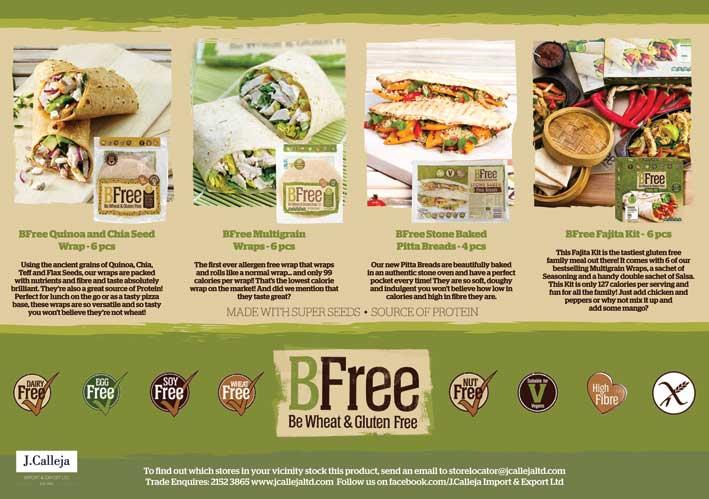
Gluten-free substitutes: There are gluten-free alternatives widely available for items that usually contain gluten in most grocery stores, and make living gluten-free much easier. It should be kept in mind, however, that minimally processed fresh food is a crucial part of a healthy, gluten-free diet. It is very important to base your diet around fruit, vegetables, meat and other healthy food groups such as poultry, fish and seafood, dairy, beans, legumes and nuts.
Many commercially available products are labeled "gluten-free," but there will be some that are not, which is why proper label-reading is important. It is also important to remember that "wheat-free" does not necessarily mean "gluten-free so be aware, as many products may appear to be gluten-free, but are not.
As a rule, traditional wheat products such as pasta, bread, crackers and other baked goods are not gluten-free. However, there are many gluten-free options available that use alternative flours and grains. Gluten-free bread can often be found in the freezer section and there is usually gluten-free flour and flour blends available in the grocery section, allowing you to bake your own bread.
Beverages: Most beverages, including juices, sodas, and sports drinks, are gluten-free. Alcoholic beverages, including wine and hard liquor/distilled liquor/hard cider are also gluten-free. However, beer, ale, lager, malt beverages and malt vinegars that are made from gluten-containing grains are not distilled and therefore are not gluten-free. There are several brands of gluten-free beer available in Malta.
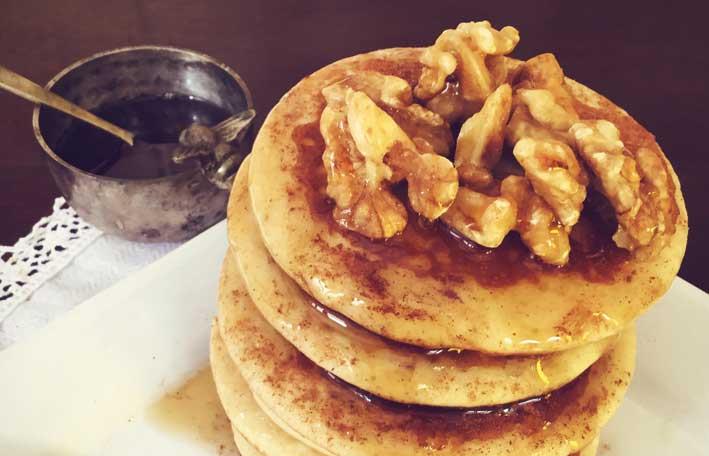
Gluten-free cinnamon pancakes
I've never met anyone who didn't like pancakes! This is a basic recipe for a sweet option, but I find cream cheese and smoked salmon to be particularly tasty too! Dusha Lia of Baltazar Bistro Ingredients for six small pancakes: 125ml; 250g gluten-free self-rising flour; 1 egg; 1 tsp cinnamon.
Method: Whisk all the ingredients together and allow to rest for 20 minutes. Pour a good dollop on to the centre of a very hot pan of melted butter, swirling the pan over the heat to make a small, good-sized pancake. Flip to cook the other side until golden. Stack pancakes high, pour over maple syrup and sprinkle with chopped walnuts. Of course, your imagination is the limit as to how you serve this glorious breakfast – perhaps with chopped fruit as well.